The third edition of Walk With mid-day gave readers an all-access pass into the 139-year-old Bazaar Gate Police Station before criss-crossing the 19th century commercial hub with varied places of worship in a precinct largely untouched by time
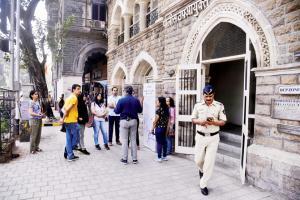
The group outside Bazaar Gate Police Station DCP Zone-1 for an introduction. The site stands near the original Bazaar Gate, one of the three gates that made up the Fort walls; the other two being Apollo Gate and Church Gate. Pics/Pradeep Dhivar
It was high noon on a Saturday. A few Kutchi shopkeepers had rolled down their shutters to beat the heat; in another shop, a group of Marwari traders dug into their multi-tiered tiffins while chatting about 'dhanda'. A walk through Bora Bazaar opposite CSMT with a select group of mid-day readers marked the third edition of this newspaper's curated series, Walk with mid-day, offering the participants a sense of what life might have been like in the 1800s when this was a buzzing commercial hub dominated by mercantile communities invited by Governor Sir Bartle Frere to trade in Bombay, then an emerging city. It was Frere who decided to bring down the walls of the original Fort that protected the city from attack, to open it up for a growing population. Since then, the area's character has remained largely unchanged.
ADVERTISEMENT
The walk began at the 139-year-old Bazaargate police station DCP Zone-1. Fiona Fernandez, mid-day's Features Editor and author discussed the building's significance; its proximity to where the original Bazaar Gate stood — one of the Fort's three entry points, besides Apollo Gate and Church Gate. UNESCO award-winning conservation architect Vikas Dilawari, who restored the police station last year, guided the group through its insides to share how the site was brought back to its original glory. DCP Sangramsinh Nishandar, pivotal to the restoration, invited the group to an interaction at his office over tea, after which the group walked straight into the bustle and grime of the narrow streets around, soaked in the sights, smells and sounds of the original mercantile city. The trail was marked by stops at the intricately carved Shantinathji Jain Derasar, the 1733-established Maneckji Sett Agiary, and the Sumerian-influenced Wadia Clock Tower and Water Fountain.
Bazaar Gate Police Station
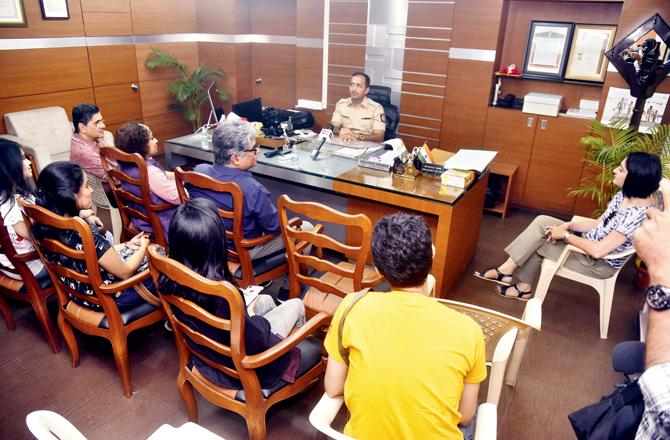
DCP Sangramsinh Nishandar interacted with mid-day readers. He welcomed queries about helming a critical post and maintaining law and order in the neighbourhood
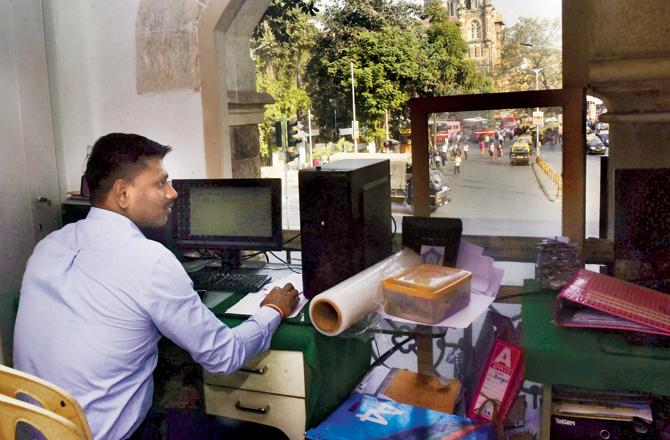
The vantage view of CSMT from the control room of the police station. The original plan of its location was to have an unobstructed view of the busy junction, the traffic and the railway terminus that came up later.
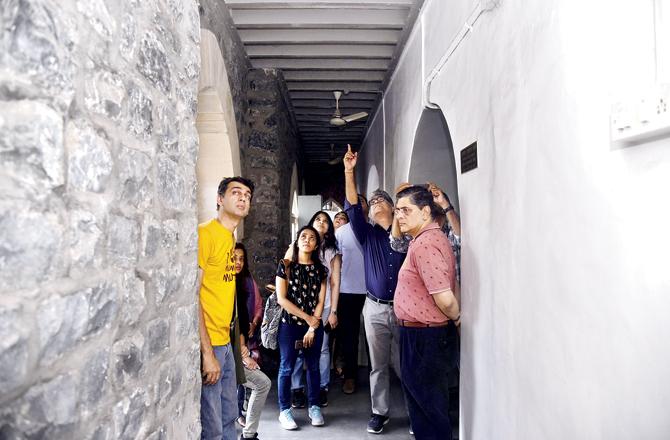
UNESCO-award winning conservation architect Vikas Dilawari, who restored the police station, explains the need to conserve existing materials like stone and wood. The Gothic Revival-style landmark is listed as a Grade III heritage structure.
Through the alleys
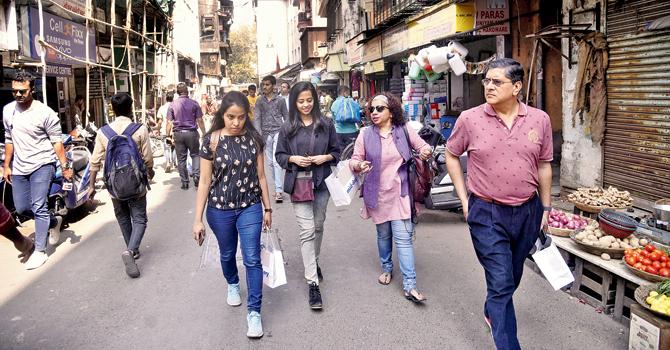
After the one-hour visit inside the police station, the group explored the inner lanes of Bazaar Gate, viewing distinct features of vernacular architecture and its streetscape reminiscent of the 19th century.
Sudama Niwas
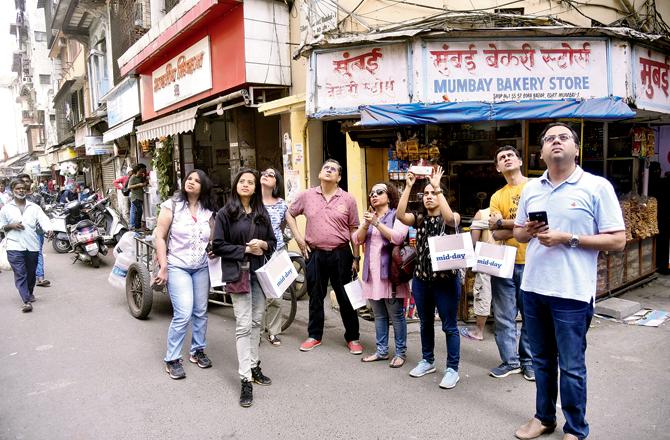
The group takes a closer look at Sudama Niwas on Bora Bazaar Street. The area derives its name from the Bora/Bohri community that migrated here, along with the Bhatias, Banias, Parsis, Marwaris and Gujaratis.
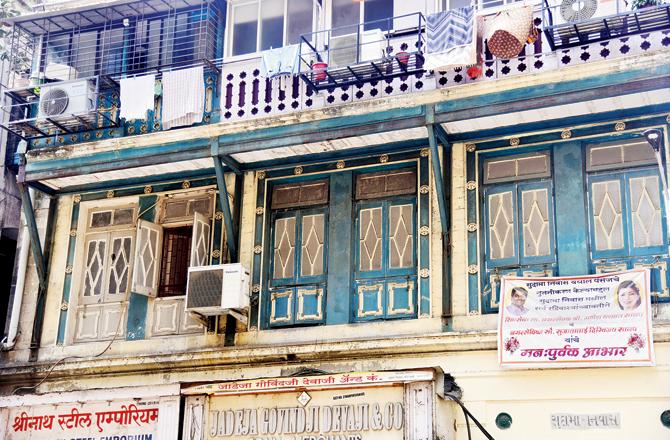
Façade of Sudama Niwas. Despite the traces of modern intervention, it is still possible to spot the pierced wooden detailing near the windows and other intricacies of the outer façade.
Shantinathji Jain Derasar
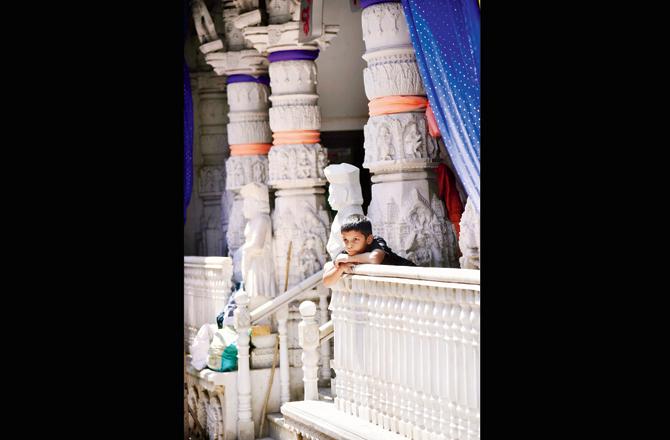
A boy by the porch. Note the dwarpals on either side
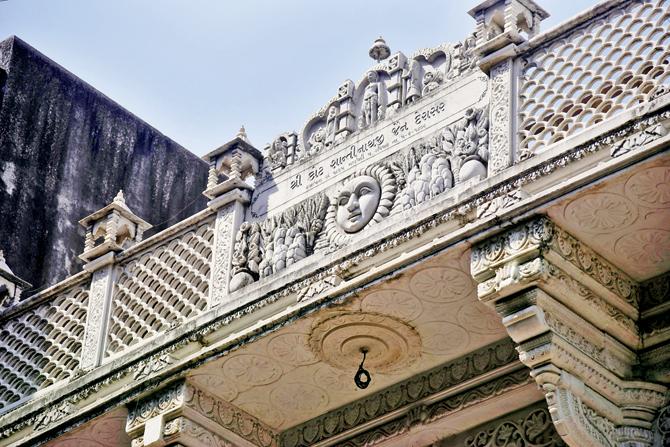
Details of pediment atop the derasar that includes its year of establishment. This place of worship stands cheek-by-jowl beside commercial or residential sites, offering an idea of how very little has changed.
Maneckji Sett Agiary
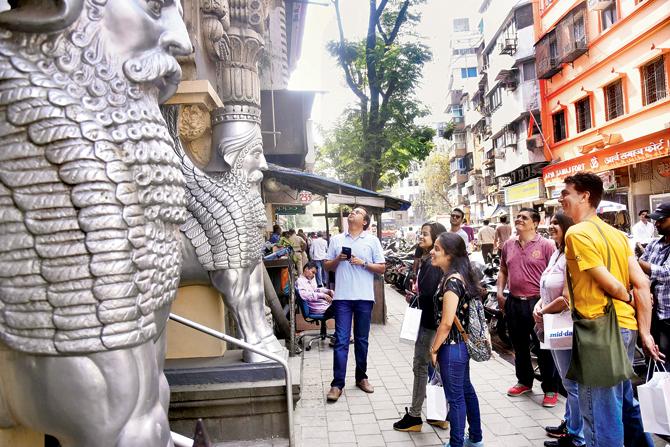
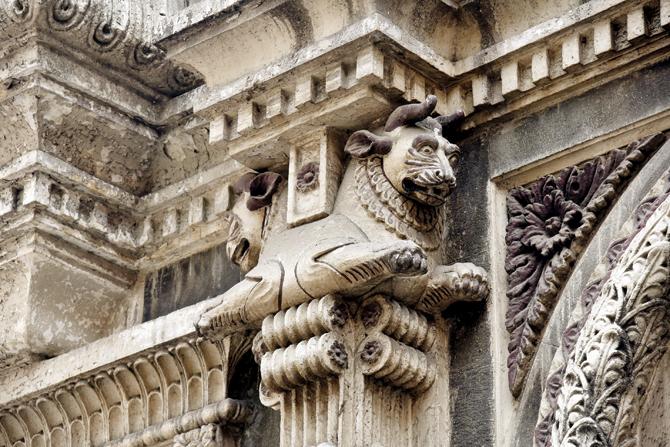
The group outside the agiary. The Parsi place of worship was built in 1733 and rebuilt in 1891. While the façade is in need of restoration, it's the silver painted lamassus, or two human-headed winged bulls who drew everyone's attention. These are typically placed at the gates of agiaries and act as guardians.
Bomonjee Hormarjee Wadia Clock Tower & Fountain
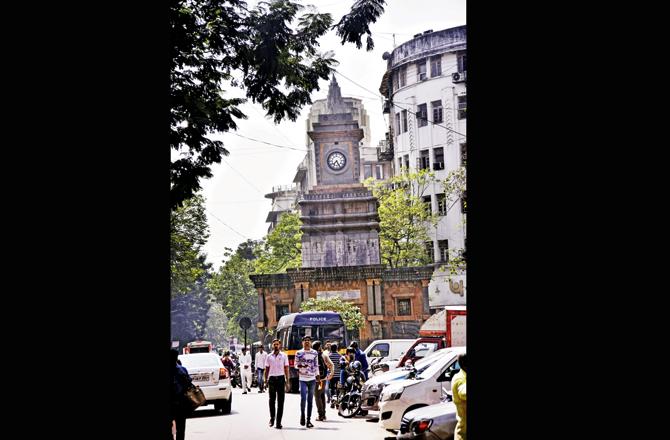
The Wadia and Clock Tower and Fountain was designed and constructed under the supervision of the chief engineer of the municipality, Rienzi Walton, and influenced by the historic Assyrian or Persepolis motif. The holy flame above the site symbolises the community's patronage towards the structure. In 2017, it received an honourable mention at UNESCO's Asia Pacific Awards for Cultural Heritage Conservation.
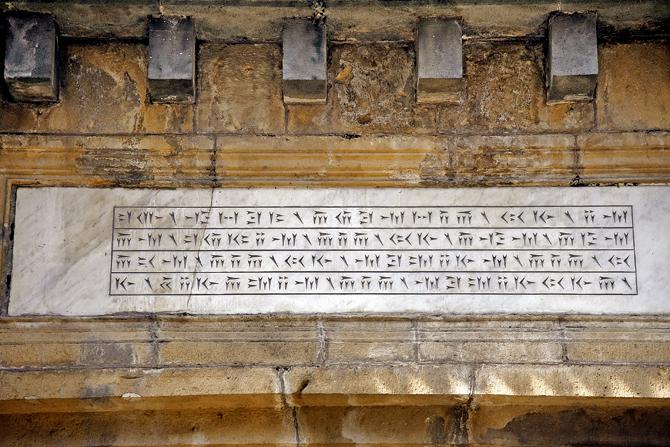
Close-up of cuneiform script on one of the sides of the structure. This was selected from the copies of a rock inscription at Behstoon in Persia. The script when translated reads as follows: 'Ahura Mazda — the wise lord who created this earth, who created the sky, who created the dwellings of human beings/ The reach 'Nejo' of Persis is spread far and wide, will that now remain unknown!/ Oh Man! Ahura Mazda has decreed to thee — do not forget the path of righteousness do not spoil the path, do not close the path.'
Watch the video of this walk on www.mid-day.com/mumbai-guide-/walk-with-mid-day
Catch up on all the latest Mumbai news, crime news, current affairs, and also a complete guide on Mumbai from food to things to do and events across the city here. Also download the new mid-day Android and iOS apps to get latest updates
 Subscribe today by clicking the link and stay updated with the latest news!" Click here!
Subscribe today by clicking the link and stay updated with the latest news!" Click here!






